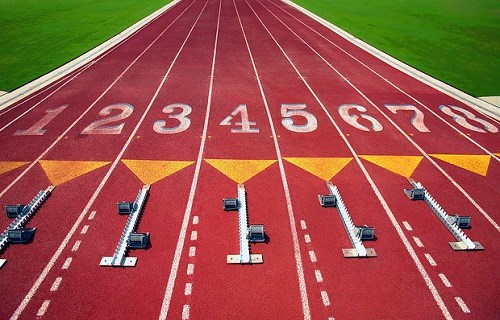Petition calls for the abolishment of IAAF’s hyperandrogenism test
Updated 24 September 2014
The level of testosterone in Chand’s body is not due to the use of performing enhancing drugs, but is a natural biological condition also known as hyperandrogenism. 18-year old Chand is expected to appeal her ban at the International Court of Arbitration for sport (CAS).
According to the IAAF ‘Regulations Governing the Eligibility of Females with Hyperandrogenism to Compete in Women’s Competitions’ hyperandrogenism in female athletes causes “an uncommon athletic capacity in relation to their fellow female competitors”.
Therefore hyperandrogenism in female athletes is not tolerated by the IAAF whose regulations declare that if a female athlete has androgen levels higher than the normal male range she is not eligible to compete in women’s competitions unless she has an androgen resistance which means that she does not derive any competitive advantage from these elevated levels.
Athletes whose tests show hyperandrogenism will, however, be able to compete if they lower their testosterone level, something that can be done by medical or surgical treatment.
According to The Indian Express, Chand has declined both types of treatment.
“I won’t undergo surgery or any other procedure. At every level of my life — junior, sub-junior or Under-20 — I have competed the way I am. I’ve been told the hormonal issue with me is natural so that’s why we have decided this,” Chand told The Indian Express.
The decision to bar Chand from the CWG has led to the launch of a campaign named ‘Let Dutee Run! Don't Ban Women Athletes for High Natural Testosterone’, advocating for the abolishment of the IAAF policy calling it “unethical, unfair, and unscientific”.
According to the petition, the IAAF policy is discriminating because it “heightens the unfair scrutiny that women athletes already experience and exacerbates discrimination and bullying of women in sport who are perceived as failing to conform to gender norms” and “disproportionately burdens women from developing countries and women who earn low incomes”.
The creators of the petition further reject that women with high testosterone levels have an unfair advantage and state that the treatments for hyperandrogenism are unnecessary and harmful to the athletes’ health and ability to compete.
Among the creators of the petition is the Sports Authority of India (SAI) who supports the Indian sprinter:
"Why are we bent on reducing or eliminating an inherent advantage that a woman is born with?" asks SAI director-general Jiji Thomson according to the Times of India.
"The presence of high level of androgen is not the fault of the athlete. We will support Dutee in her battle against this bias and ensure that her lawyers insist on this biological factor at CAS."
Before approaching CAS, Chand and her supporters have to take the appeal case to the Athletics Federation of India, writes The Indian Express.
”As the IAAF is neither engaged in nor responsible for the contention concerning this athlete’s [Dutee Chand] right to compete, we have no comment to make on this subject,” says an email form the IAAF communications department to Play the Game.
However, the IAAF wishes to emphasize that “every athlete competes in Athletics on his or her own initiative” and that the IAAF regulation ”is meant to uphold competitive equality in the female category and not to question the gender”.
The IAAF further states that their regulation is based on “extensive international expertise in both ethics and medical science”.






